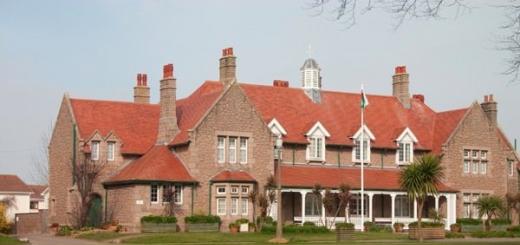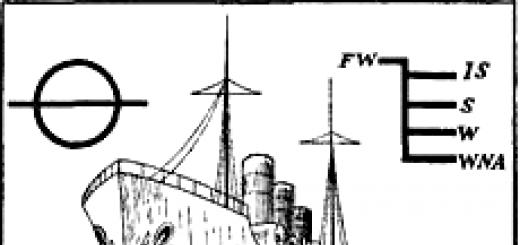Renting real estate has now become a popular activity, because temporary ownership of any premises is much more profitable than buying it. Owners of real estate can legally rent it out, but only if all documentation is accurately completed. Here it will be important to correctly indicate the type of economic activity for tax purposes during initial registration, and this is done using a special code. This article will be about OKVED codes for renting non-residential premises in 2019.
Renting out real estate has not surprised anyone for a long time and will not be a very difficult task. Any real estate can be used:
- Rooms.
- Entire apartments.
- Houses with a large number of apartments.
- Non-residential premises, including warehouses, production facilities, etc.
- Garages.
- Offices, etc.
If real estate is leased by an entrepreneur, one of the following methods is usually used:
- Through a subtenant - transactions with residential real estate.
- With an intermediary.
- Transfer directly from the owner.
It is especially popular now to take not even the whole office, but only part of it - for example, a meeting room or a hall with some equipment, in order to use it for a short time to solve current problems.
An entrepreneur can manage the process; here, his responsibilities usually include:
- Control of payments for utilities.
- Ensuring timely rent payments.
It is worth mentioning here that the landlord must only monitor utility bills, and the tenants themselves must organize the maintenance of elevators, garbage collection, etc. They will also have to draw up an agreement for the temporary use of the premises on their own.
Code classifiers
OKVED codes for leasing non-residential premises can always be found in a special All-Russian Classifier - since 2017, only OK 029–2014 contains current information. All the others are no longer used, so before taking a number from the classifier, it is important to pay attention to how relevant it is.
In the latest one, from 2014, the division between habitable and non-livable properties became clearer.
OKVED codes for non-residential premises
There are no codes to mark a sublease. Here you are allowed to use the same ones as for regular renting and managing your own premises, the main thing is to consider whether it is residential or non-residential.
The main OKVED code for leasing your own real estate is 68.20, which is also associated with the management of leased real estate. Marks from the group combined under 68.20 can be used in the following cases:
- Renting your own or borrowed real estate of any type - from high-rise buildings and separate residential areas in them, to warehouses and even plots of land.
- Renting apartments, furnished or unfurnished, for long-term stays, usually from a month to a year or several years.
- The construction of any buildings is not made to order.
- Regulation of parking for movable property, including mobile homes.
There are also items in groups about non-residential premises:
- 68.31 – Work of real estate agencies on the basis of a contract or for a fee.
- 68.32 – Management of real estate under the same conditions.
Based on the information above, the main OKVED codes for the rental of non-residential real estate will be:
- 68.20.2 – management of own or leased non-residential real estate.
- 68.31.12 – if mediation occurs in the purchase and sale of uninhabited real estate.
- 68.31.22 – provision of intermediary services when registering leases on a commercial basis.
- 68.31.32 - the basis is the same, but now the matter concerns not the purchase and sale itself, but only consultation with it.
- 68.31.42 – the same consultation, but here for renting real estate.
- 68.31.52 – valuation of real estate under contract or for payment.
- 68.32.2 – management of the general operation of real estate with the same conditions.
It is important to remember that sometimes several internal codes are indicated, but they must be from the same group.
Procedure for submitting documents
Once OKVED has been determined, you need to follow a few simple steps to finally register your activities:
- Download and enter information into the application form - for organizations and individual entrepreneurs. It is important to fill out the documents carefully and carefully so that the Federal Tax Service does not refuse registration.
- Submit the application within the required time frame - within three days after the start of activity. The fine for late payment is 5 thousand rubles.
- Pick it up at the place of registration.
It is easy to register yourself as a landlord of real estate if you follow all the rules when filling out the papers and pay special attention to the correct selection of the OKVED number. This will allow you to avoid problems with the tax office and register quickly, and you only need to select codes during registration, so by spending time on this once, you can avoid difficulties in the future.
Rent of non-residential premises - OKVED 2019 for this type of activity should be found in the OK 029-2014 classifier. Which codes are for non-residential rentals and which for residential premises? Are there separate codes for subletting premises? We will look at the answers to these and other questions in the article.
Which OKVED contains the current codes for leasing property?
Until 2017, in relation to OKVED codes for renting premises, it was necessary to focus on the OK 029-2001 classifier, despite the existence of 2 more later classifiers: OK 029-2007 and OK 029-2014.
Since 2017, the use of the OK 029-2001 and OK 029-2007 classifiers has been discontinued. And the only document used to determine OKVED was the list of types of activities contained in the reference book OK 029-2014, according to which, already from 07/11/2016, when registering legal entities and individual entrepreneurs, codes began to be entered into the Unified State Register of Legal Entities and the Unified State Register of Individual Entrepreneurs (letter of the Federal Tax Service of Russia dated 06/24/2016 No. GD-4-14/11306@).
Thus, in 2019, the determination of OKVED related to the rental of premises is possible only according to the OK 029-2014 classifier.
Which OKVED codes correspond to residential rental activities?
According to the OK 029-2014 classifier, the OKVED codes for leasing property are as follows:
- 68.2 (rent and management of own or leased real estate). This code has 2 varieties, corresponding to residential (68.20.1) and non-residential (68.20.2) premises.
- 68.3 (transactions with real estate for a fee or on a contractual basis), which contains a code corresponding to the activities of real estate agencies (68.31), engaged, in particular, in intermediary activities in the rental of real estate (68.31.2). The last code is divided into 2 types, related to residential (68.31.21) and non-residential (68.31.22) premises.
- 68.32 (management of real estate for a fee or on a contract basis), which includes rent collection activities.
According to the OK 029-2014 classifier, the division by type of activity has become more specific compared to the previously used classifier. But at the same time, the division into OKVED for leasing non-residential premises and OKVED for leasing residential real estate has been preserved.
Are there OKVED codes for subletting non-residential premises?
Special OKVED codes for leasing premises on sublease terms are not identified in the classifier. In such a situation, you will have to use the codes specified for rental. At the same time, the division of rental codes into those related to residential and non-residential premises is present in the directory.
Results
When conducting business in 2019 related to the provision of real estate for rent, it is necessary to use the OKVED code for leasing non-residential premises or residential real estate, specified in the OK 029-2014 classifier.
Rent of non-residential premises - OKVED 2019 for this type of activity should be found in the OK 029-2014 classifier. Which codes are for non-residential rentals and which for residential premises? Are there separate codes for subletting premises? We will look at the answers to these and other questions in the article.
Which OKVED contains the current codes for leasing property?
Until 2017, in relation to OKVED codes for renting premises, it was necessary to focus on the OK 029-2001 classifier, despite the existence of 2 more later classifiers: OK 029-2007 and OK 029-2014.
Since 2017, the use of the OK 029-2001 and OK 029-2007 classifiers has been discontinued. And the only document used to determine OKVED was the list of types of activities contained in the reference book OK 029-2014, according to which, already from 07/11/2016, when registering legal entities and individual entrepreneurs, codes began to be entered into the Unified State Register of Legal Entities and the Unified State Register of Individual Entrepreneurs (letter of the Federal Tax Service of Russia dated 06/24/2016 No. GD-4-14/11306@).
Thus, in 2019, the determination of OKVED related to the rental of premises is possible only according to the OK 029-2014 classifier.
Which OKVED codes correspond to residential rental activities?
According to the OK 029-2014 classifier, the OKVED codes for leasing property are as follows:
- 68.2 (rent and management of own or leased real estate). This code has 2 varieties, corresponding to residential (68.20.1) and non-residential (68.20.2) premises.
- 68.3 (transactions with real estate for a fee or on a contractual basis), which contains a code corresponding to the activities of real estate agencies (68.31), engaged, in particular, in intermediary activities in the rental of real estate (68.31.2). The last code is divided into 2 types, related to residential (68.31.21) and non-residential (68.31.22) premises.
- 68.32 (management of real estate for a fee or on a contract basis), which includes rent collection activities.
According to the OK 029-2014 classifier, the division by type of activity has become more specific compared to the previously used classifier. But at the same time, the division into OKVED for leasing non-residential premises and OKVED for leasing residential real estate has been preserved.
Are there OKVED codes for subletting non-residential premises?
Special OKVED codes for leasing premises on sublease terms are not identified in the classifier. In such a situation, you will have to use the codes specified for rental. At the same time, the division of rental codes into those related to residential and non-residential premises is present in the directory.
Results
When conducting business in 2019 related to the provision of real estate for rent, it is necessary to use the OKVED code for leasing non-residential premises or residential real estate, specified in the OK 029-2014 classifier.











